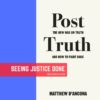The situation is not desperate. Thousands flock to Spinola Bay to drink and revel. The memorial has been cleared (again) because someone somewhere has decided that we have a collective need to forget and it is his duty to help us do so. Political appointees and apparatchiks everywhere will once again deem it necessary to […]






